Das Olympische Bildungsmagazin
Growing pressure as the IOC and Japan play for time
- Jens Weinreich
- 22. März 2020
- 16:13
- 2 Kommentare
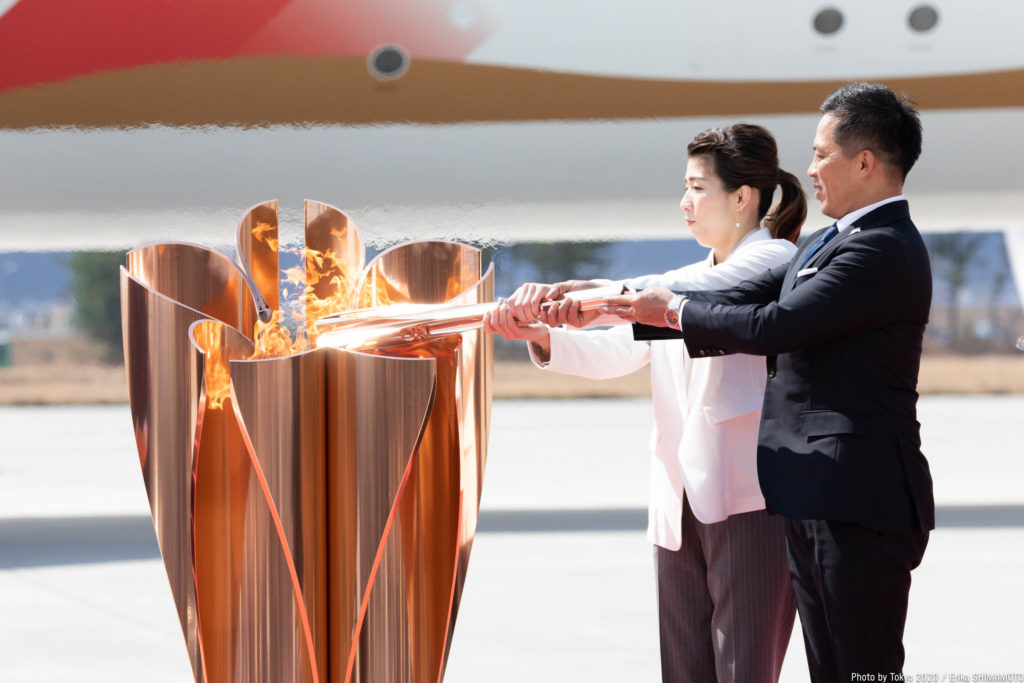
Let’s not kid ourselves: the Olympic Games can not and will not take place in Tokyo this year. Big appeals are not necessary. Sooner or later, the reality will catch up even with the International Olympic Committee (IOC).
The Olympic Games are not immune to COVID-19, even if the Lords of the Rings in the last few weeks have given that impression through actions that are difficult to understand. The first IOC member, Prince Albert of Monaco, has contracted the virus and is in quarantine. And Greek IOC member Spyros Capralos, once involved in illegal Olympic ticketing, indicated when he handed the Olympic torch over to the Japanese that the fire could defeat the corona virus.
If only it was that easy.
The coronavirus is raging. Europe and North America are standing still, as do other parts of the world. China, with Beijing hosting the 2022 Winter Olympics, was the epicenter of the pandemic. Italy, host of the 2026 Winter Games, is suffering to an extent that was previously only known from disaster movies such as ‚Outbreak‘. There are doubts about the recent success stories from China. Nobody should trust the messages of the party and state leader Xi Jinping, recipient of IOC’s Olympic Order.
And Japan, host of the Games of the XXXII Olympiad?
In Japan, the Olympics are a state doctrine. The Olympic Games are the top priority for the conservative Prime Minister Shinzo Abe, who holds on to the gigantic project with all his might. Japan has already invested almost $30 billion in the mega-event, four times the amount that was promised in 2013 during the application and candidate phase.
Too big to fail.
That is the financial side of these Olympic Games.
On top of that – and nobody should underestimate the legendary pride of the Japanese leadership, whether in the government or in the organising committee TOCOG – they don’t want to lose face. In Japan, schools are due to reopen in a few weeks.
However, there is a growing body of evidence that suggests that Abe is not taking the facts very seriously, that data may be suppressed and statistics may be falsified. The fact is there is relatively little testing for COVID-19 in Japan. Ordinary citizens are refused if they request a test. That is why the figures for COVID-19 infection in Japan should also be treated with caution.
IOC President Bach plays with dates
And what does the International Olympic Committee (IOC) do, owners of the Olympic Games, which are marketed as a franchise system?
IOC President Thomas Bach still argues that it is too early to talk about emergency options. Internally, of course, they are working on various scenarios. If the time comes (and this date apparently only he, the IOC boss, can determine), the IOC will follow the advice of the World Health Organization (WHO). Thomas Bach continues to play for time.
And he doesn’t take the truth very seriously. In an interview with the New York Times published on 19 March, he claimed that there were still four and a half months to go before the Tokyo Games.
That may be a detail. But it’s wrong.
Strictly speaking, the IOC only has 100 days, just over three months, before the Games begin in Tokyo.
Because these are the facts: The Games are officially scheduled to open on 24 July. The ‚Olympic period‘, a definition made by the IOC, begins on 14 July with the opening of the Olympic Village. If the business partners Thomas Bach and Shinzo Abe actually want to run the billion dollar show, then all Olympic participants (a total of tens of thousands of people from all over the world) would have to go into quarantine two weeks beforehand.
This quarantine should then begin for the first athletes on 1 July 2020.
In total, more than a quarter million people from all over the world are accredited at the Summer Olympics. It is not just athletes but also coaches, doctors, judges, officials, IOC members, association presidents, sponsors and media representatives – not to mention all the volunteers, security forces, technicians and those who ensure the care of the Olympic participants. In 2012 there were about 350,000 people in London. In times of corona: A gigantic, uncontrollable source of danger.
What happened to the slogan ‚Celebrate Humanity‘?
For a thousand reasons, common sense dictates that it should be forbidden in these difficult days to even ask whether these Olympic Games should take place. Of course they should not. Unfortunately, we need to have such a discussion because Abe and Bach stubbornly stick to their plans while the world around them is suffering.
When the IOC had to survive an existential bribery crisis in 1999, one of the measures that was initiated at that time was the launch of a large-scale marketing campaign: ‚Celebrate Humanity‘.
In spring 2020, large parts of the world are suffering, countries and entire continents are or will be sealed off, hundreds of people die every day from the coronavirus in Italy alone, Olympic athletes can hardly find any training opportunities (and have other existential concerns themselves). So what remains of the Olympic slogan ‚Celebrate Humanity‘ in 2020? What is the IOC doing to ask more specific questions, for example for Italy, host of the Winter Games in 2026?
The IOC is guaranteed not to miss out on any possibility of summoning the supposedly healing power of Olympism in the coming years, when the virus is hopefully successfully combated. In other words: They want to capitalise on the pandemic. It’s part of their plans.
But what is the IOC doing now? Today? Tomorrow? How does the filthy rich IOC support the suffering people in Lombardy, the Olympic hosts in 2026?
IOC attempts to silence athlete voices
More and more Olympic athletes are commenting on such core questions, including some Olympic legends.
Matthew Pinsent from Great Britain, for example, four-time Olympic rowing champion: “Call it off!” wrote Pinsent on Twitter.
Other Olympic champions feel pressured by the IOC. Said the Greek pole vaulter Katerina Stefanidi, a candidate for the upcoming elections of IOC’s athletes commission: „The IOC wants us to keep risking our health, our family’s health and public health to train every day? You are putting us in danger right now, today, not in 4 months.“
Again, these voices get louder every day, and more voices are added every day.
One of the most remarkable statements came from Hayley Wickenheiser from Canada, four-time Olympic champion in ice hockey and an IOC member herself until 2022 in a capacity as an athlete representative. Wickenheiser has spent the past two and a half months as an aspiring doctor in the emergency room. She knows everything about the Olympics – and a lot about the horrors of the corona virus. She says:
„An Olympics is a wonderful thing to look forward to, but this crisis is bigger than even the Olympics. The athletes need to know that their health is equally as important and is still in consideration. I’m not saying to cancel the Olympics, I am saying to have the empathy and compassion to focus on what’s real right now. It’s okay to say we don’t know. That’s demonstrates humility and compassion. This crisis is global and so are the Olympics. Imagine an Italian or Iranian athlete who can’t even leave their house hearing that the Olympics are moving ahead as normal and your world is crumbling at your feet. People are dying.“
Hayley Wickenheiser attended the IOC President’s conference call on 18 March with more than 200 athletes from around the world. However, she could not repeat her position on that occasion. There were technical problems.
That may have been a coincidence.
Maybe not.
The fact is that high-ranking athletes‘ spokespeople – such as former IOC members Beckie Scott (Canada), Claudia Bokel (Germany) and Adam Pengilly (Great Britain) – who have been criticial about the issue of doping in Russia in recent years, were immediately attacked and then rejected by the so-called Olympic family.
Thomas Bach likes to preach that sport and his Olympic family should „speak with one voice“. Deviators are not tolerated. Many participants in the strange conference call reported that it was more a lecture by Bach and some IOC directors – but not an open discussion. Emergency variants (a plan B or a plan C) such as the postponement of the games were not discussed.
There are already initial indications that the IOC administration is regulating athletes for divergent opinions.
And another historical fact worth remembering in these days: When the Olympic Games 2008 were awarded to Beijing at the IOC session 2001, there was only one IOC member who addressed the issue of human rights and criticised the idea that the Chinese wanted to hold the volleyball competitions in Tiananmen Square – the place where the democracy movement was crushed in 1989 and 2,600 people were murdered.
It was the rower Roland Baar (now deceased) from Germany who spoke about the Tiananmen massacre. And what happened then: IOC President Juan Antonio Samaranch had Roland Baar’s microphone turned off. Baar went on talking and wanted answers from the Chinese and Samaranch – but nobody could hear him and the meeting moved on.
Chance or not: There is a certain tradition in the IOC for sudden technical problems. Whether at the time with Roland Baar or now with Hayley Wickenheiser.
NOC’s say one thing in public, another to the IOC
So far, there have been only a few voices among the 206 National Olympic Committees (NOC) demanding that the Olympic Games should be postponed. Although the NOC officials are close to the grassroots and know that the sports business, like all public life, is at a standstill in many nations.
The Spaniard Alejandro Blanco, a veteran official, is reported in some media to have called for a postponement. However, when Blanco participated in the conference call with IOC President Bach on 18 March, he said nothing of the sort.
There was no contradiction. The IOC boss agreed that it was too early to make a decision. The representatives of Danish sports and other Scandinavian countries have not asked for a postponement. They support the IOC’s wait-and-see attitude.
Alfons Hörmann, President of the German NOC (DOSB) does the same. However, before the session with Bach, he made a remarkable comment in a television interview: “Now it’s about the survival of mankind and not a question of some gold, silver or bronze medals. In the end, neither Japan nor the IOC will make the decision, but it will be the global community that lowers or raises the thumb. „
In interviews, many of these officials say things that sound more sensible than what they say and decide within the Olympic family.
This prevailing opportunism, this Olympic submissiveness is a huge problem.
Millions are at stake for the world sports federations
Even less criticism is currently coming from the 33 world sports federations (IF) in the Olympic program. These are the 28 permanent federations at the Summer Games – and the five guest sports for Tokyo.
The federation presidents and secretary generals had their video conference with the IOC leadership on 17 March. As usual, a communiqué from the IOC had already been prepared. All federations nodded the communiqué through. There was no debate about a postponement. Nobody protested that the suspect of serious corruption, Hungarian Tomás Aján, boss of the International Weightlifting Federation (IWF), attended the meeting even though Aján is ’self suspended‘, one of the droll customs in the Olympic world.
Federation representatives say that the health of athletes is paramount. However, if you talk to participants in this round of IOC consultations, it quickly becomes clear that many are primarily concerned with money.
The five guest federations (surfing, skateboarding, softball/baseball, karate, climbing) only became Olympic sports because they refrained from being involved in the marketing revenues – that was the deal with the 28 core sports. $590 million will be shared among the 28 permanent Olympic IF and their umbrella organisation ASOIF. The federations in the highest category A (athletics, gymnastic, aquatic) each receive $40 million, those in the lowest category E (golf, modern pentathlon, rugby) get $14.1 million.
Some of these federations can not survive without the Olympic royalties, which are due to be paid in late 2020. These include AIBA (boxing), which is already suspended and insolvent, as well as UIPM (modern pentathlon), WA (archery), IWF (weightlifting), ICF (canoeing) or ITU (triathlon).
They all need the IOC payments but will not get the expected amounts if the Games do not take place and the IOC will not receive almost $3 billion from TV stations and sponsors.
Other smaller associations such as the ISSF (shooting) or FIE (fencing) are led by the Russian billionaires Vladimir Lisin and Alisher Usmanov. If need be, these federations would be able to cope without the IOC royalties. Just recently, in February, Usmanov donated a historic manuscript of IOC’s founder Pierre de Coubertin to the Olympic Museum – the tycoon paid $8.8 million for it.
Questions about insurance
It remains unclear which insurance policies would apply in the case of a pandemic and a postponement of the Tokyo Games (or in the worst case, even a failure of the Games). With its Olympic Foundation, under which all companies and foundations of the IOC group are gathered, and which currently has a capital of around $ 900 million (according to the newest available report), the IOC is optimally secured.
The IOC could even survive the failure of two Olympic Games if necessary.
That was exactly the intention in 1992 when the Olympic Foundation was founded. The IOC is silent about details of the ‚Insurance Premium for Games Cancellation‘ as it is called in the annual reports. It is clear that the insurance packages were taken out not only with one but with several companies. It is unclear whether the IOC has to pay money to the 28 IF and 206 NOC if the Games will not be held.
As part of the umbrella organisation ASOIF, many, but not all, of the 28 summer IF have taken out default insurance for IOC revenues with Swiss Re. According to a president, these cost between 800,000 and one million dollars and cover 25 percent of the amount that the associations would receive from the IOC.
The associations are of course very afraid. They want security in difficult times. ASOIF President Francesco Ricci Bitti and Thomas Bach are said to have had serious arguments about the way forward. However, in the video conference with the IOC leadership, there was no opposition and everyone fell in line.
Wait until May. Play for time. Pray. Hope.
Alternatives to the 2020 Olympic Games
Moving the Games to 2021 or 2022 would of course cost Tokyo billions more. The biggest logistical and legal problems lie in the usage contracts for Olympic venues and especially the Olympic village.
Compared to TOCOG’s problems, the international sports calendar makes it relatively easy to postpone the Games.
In 2022, for example, the slot will be free in summer because the World Cup in Qatar will take place in November and December. The Winter Games in Beijing are also planned for 2022. However, there were winter and summer Games in the same year from 1924 to 1992. It wasn’t until 1994 that the IOC changed its rhythm and let winter and summer Games take place alternately in even years in order to be able to better market the overall product.
The Tokyo Games 2021 seem even more likely. That would be cheaper for the organisers than having a lot of extra costs for two years. In 2021, however, one would have to come to an agreement with the two core Olympic federations of athletics (WA) and swimming (FINA). Their World Championships in Eugene (athletics) and Fukuoka (swimming) would either have to be suspended or integrated into the Olympic Games. Historically, everything has been done before: until 1980, Olympic champions in athletics were automatically world champions of the then IAAF.
IOC President Bach will not be able to maintain his stubborn stance until May. It can only be a matter of days or a maximum of weeks before a decision about the Tokyo Games is made. The signals that come from Lausanne during these hours of 20 March suggest that a decision is coming closer. Supposedly more and more officials in federations and the IOC are skeptical about whether one can trust the soothing reports from Japan. Whether the numbers for infection are correct.
The situation remains dramatic. And every day that passes without the IOC making a decision and agreeing on a sensible Plan B makes everything more complicated. The IOC also endangers, above all, the health and dreams of those athletes it claims to protect.
The analysis was first published at Play the Game
Sie wollen Recherche-Journalismus und olympische Bildung finanzieren?
Do you want to support investigative journalism and Olympic education?
SPORT & POLITICS Shop.
Subscribe to my Olympic newsletter: via Steady. The regular newsletter is free. Bur you are also free to choose from three different payment plans and book all product at once!
-
Angebot Produkt im Angebot
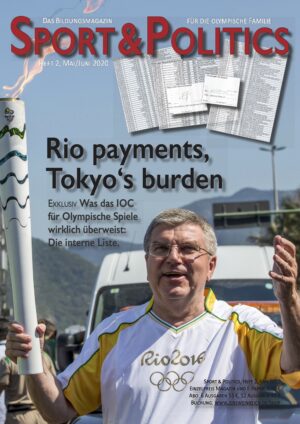 Business-Paket
Business-Paket1.090,00 €Ursprünglicher Preis war: 1.090,00 €890,00 €Aktueller Preis ist: 890,00 €.
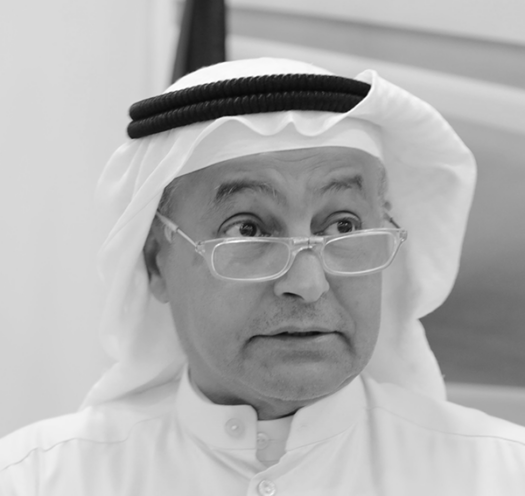


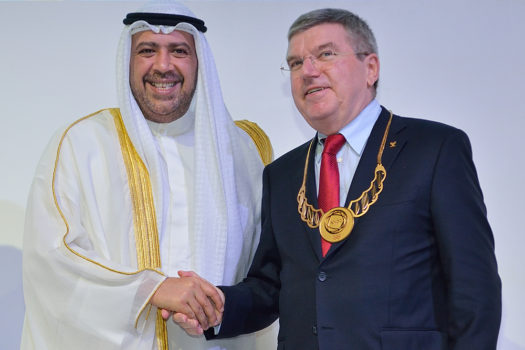
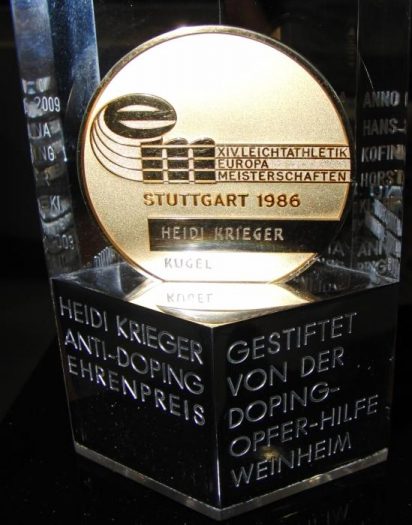
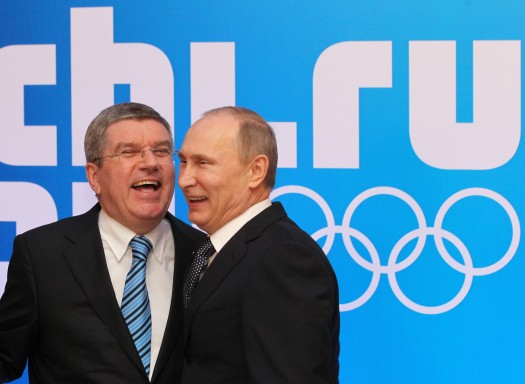
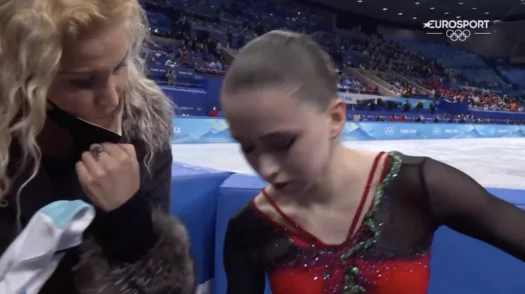
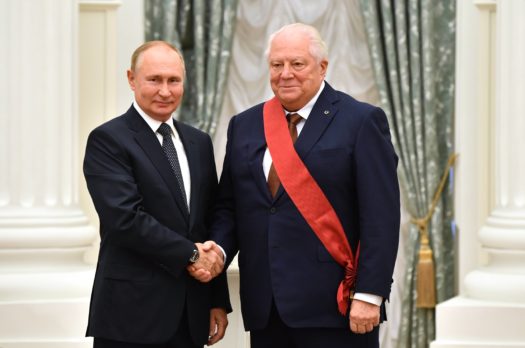
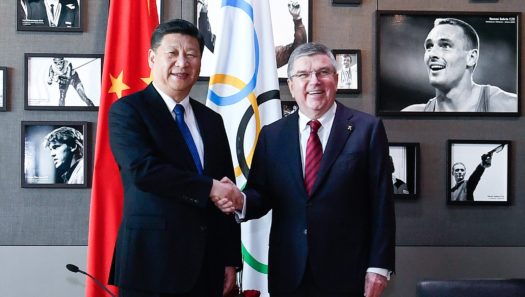
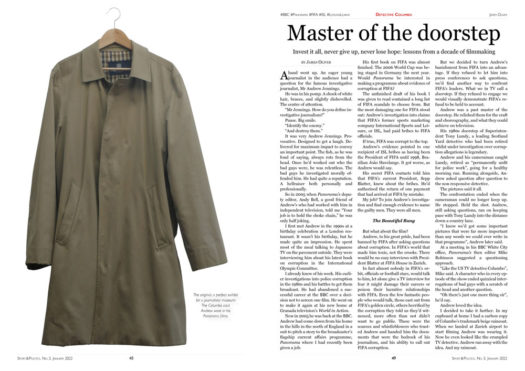
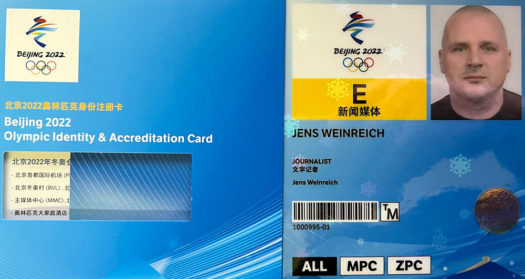
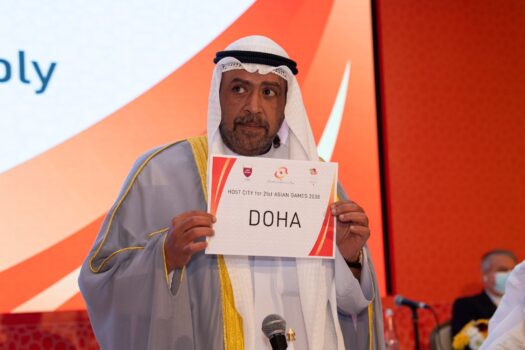
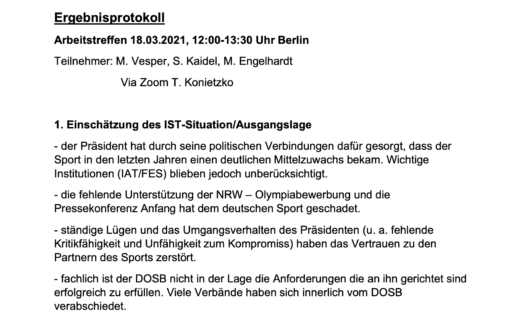
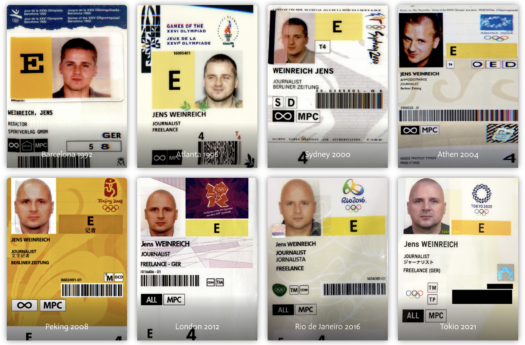

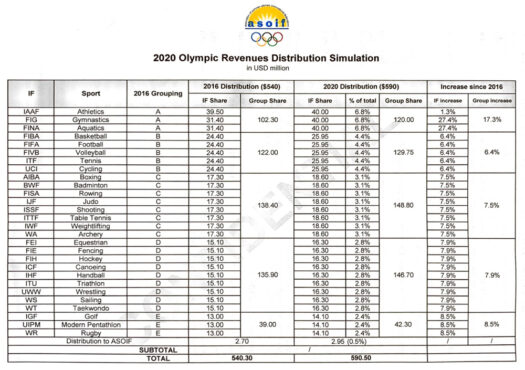
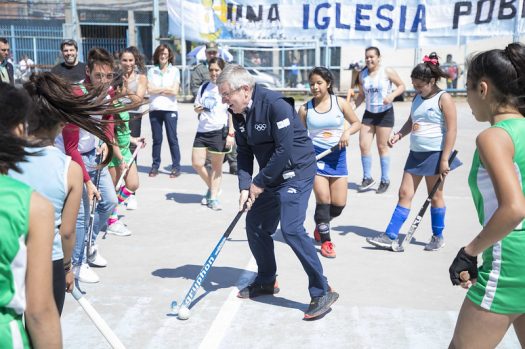
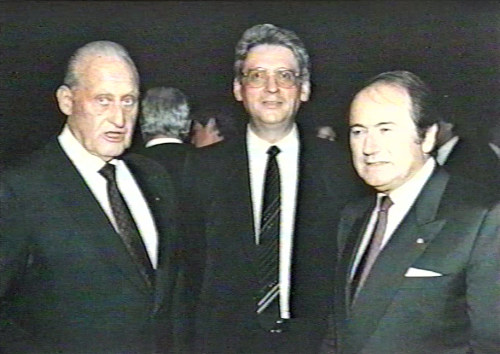
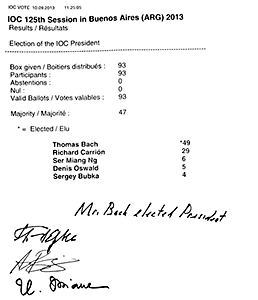
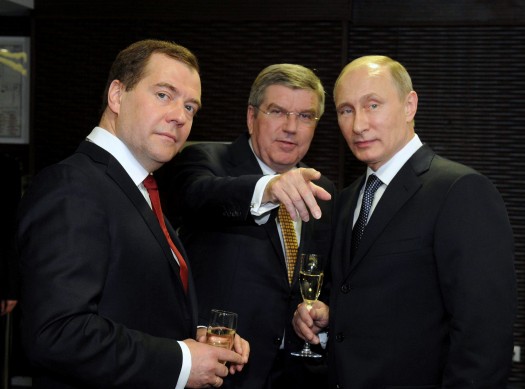
Pingback: EXCLUSIVE: How dependent federations are on the revenues of the Olympic Games – SPORT & POLITICS
Pingback: Die Doppelmoral-Falle des Helmut Digel: „Solidarität mit IOC-Präsident Dr. Thomas Bach!“ – SPORT & POLITICS